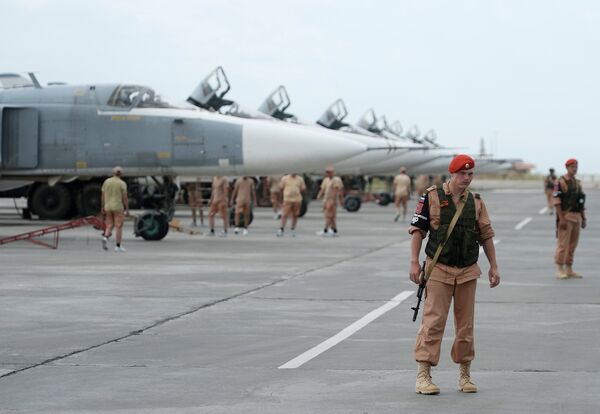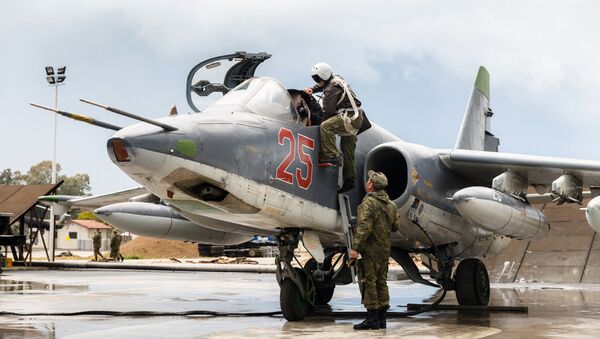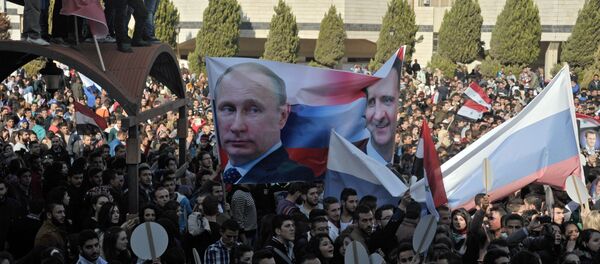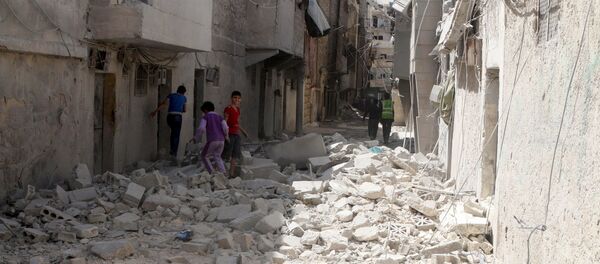This week marks the first anniversary of the beginning of Russia's anti-terrorist air campaign in Syria, which was launched at the behest of the Syrian government.
According to Lukyanov, "the main achievement of Russia's air campaign is that it managed to prevent the full-fledged collapse of the Syrian state." If Russia had not intervened a year ago, Bashar Assad would be dead and "Syria itself simply would not exist now."
At the same time, it is too early to speak of the political settlement and stabilization of the situation in Syria, he contended.

"Neither side can win by military means. Even supported by powerful Russian forces, the Syrian troops still lack the potential to resolve the relevant military task, with the opposition also failing to gain the upper hand. The political process is stalled because the warring parties fail to realize the fact that they achieve nothing by referring to military means," Lukyanov said.
He also drew attention to the fact that the information war between Russia and the United States continues to be part of the common political standoff in Syria.
"Washington reacts angrily to Russia now playing a very significant role in terms of its influence on the Syrian conflict. The US was so confused about what it wants to achieve in this conflict that they already feel uneasy in Syria. As for Russia, it acts as a major factor that the Americans are unable to contain," he said.
Asked about whether one should hope the ceasefire in Syria will work against the backdrop of angry US rhetoric, Lukyanov remained downbeat about the matter.
"I am afraid that there are no prospects for a lasting truce in Syria due to the current differences on the issue between outgoing US President Barack Obama and the Pentagon, which also does not trust Russia," he said.
Lukyanov also suggested that the Syrian conflict is unlikely to expand across the region in the future, citing Turkey, Saudi Arabia, Qatar and Iran, which he said previously were the major players of the Syrian standoff.
"The situation has changed, with the regional players already moving aside and the Syrian players coming to the fore. Now a lot depends on them," he pointed out.
Moscow launched its first airstrikes against terrorist positions in Syria at the behest of President Bashar Assad on September 30, 2015.
In March 2016, Russian President Vladimir Putin ordered the withdrawal of a major bulk of the Russian forces from Syria, citing the successful fulfillment of their tasks.
However, some of the air units remained in the country to provide aerial support for ground operations launched by the Syrian Army.




